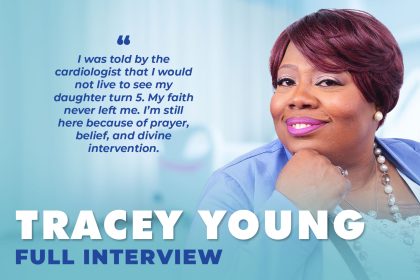At the conclusion of Black maternal health week, we would be remiss not to direct readers and viewers to the work of Dr. BK Edmonds, author and curator of The Quiltmakers. The stunning novel is a fascinating tale of Black mothers who unselfishly dedicate their lives – and resources – to nurturing generation after generation of future leaders and change agents. “We created a utopia where there is a community in Georgia where no Black women have died for over 100 years. We’ve opened the conversation to see what it would take to create that utopia through this story,” Edmonds shared with rolling out.
The book embraces the art of quilting as a healing tool for quilters and women involved in the precious practice of caretaking. It also takes a deep dive into mothers’ adversities when giving birth, as Dr. Edmonds advocates for educating pregnant women and their support systems. During April, all of the proceeds from the book sales will be donated to the improvement of Black maternal health.
What message can our sisters take away from reading your book?
The medical system, for some reason, has difficulty hearing the Black woman’s voice. You should go in and realize that you may need a patient advocate, and there are 24-hour patient advocates to ensure you are being heard. In the book, we talk about what they do during those prenatal visits. Through research and talking to people, we realized there is a distinct inability in health care to hear Black women in distress.
How can we prepare as mothers for instances where we feel unheard?
Our concern is mainly that six weeks after delivery. We want to educate our community about the symptoms. … As fathers and grandparents, we are training up the support system where we need to protect the most valuable thing in our lives, and we need a fundamental understanding of what signals to look for. We want that husband, father, or brother to look after the women in their lives, get you to the proper care, and [ensure that] the hospital hears you. One of the things I’ve found in some of the policy changes is that there is a policy that any woman that comes into [a facility] who is pregnant or recently gave birth, has to be directly delivered to an OB-GYN as soon as they come in. No one leaves without being physically seen by a doctor.











